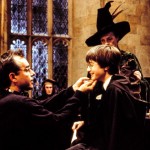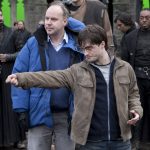EXCLUSIVE: Interview With ‘Escape From Pretoria’ Writer/Director Francis Annan
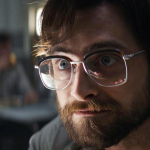
Mar 05, 2020
Directors, Films, HP Cast, Interviews, Movies, News, Radcliffe
Escape From Pretoria, a political thriller starring Harry Potter‘s Daniel Radcliffe (Harry Potter) and Ian Hart (Professor Quirrell) debuts in U.K. and U.S. cinemas tomorrow, March 6th. We had the chance to chat to director, Francis Annan, about co-writing and directing his first feature-length film and working with real-life escapee Tim Jenkin, working on set Daniel Radcliffe and Ian Hart and much more in an exclusive interview.
Escape From Pretoria tells the true story of Africa’s biggest prison break. Based on Tim Jenkin’s 2003 book Inside Out: Escape From Pretoria Prison, telling the story of the ANC activist’s escape from Pretoria prison in apartheid South Africa along with two other prisoners , carving wooden keys to fit 11 doors throughout the prison with meticulous attention to detail, avoiding the discovery of guards. Jenkin was arrested in 1978 along with fellow freedom fighter, Stephen Lee (Daniel Webber), for a leaflet-bombing non-violent protest done in support of Nelson Mandela’s African National Congress, and escaped in 1979 with Lee and another prisoner, Alex Moumbaris (replaced by Leonard Fontaine (Mark Leonard Winter).
The movie turns this experience into an edge-of-your seat thriller, and though the movie’s attention on the brutality of the prison, the atmosphere of apartheid-era South Africa and injustice is on the lighter side (thought still touched upon), it shares part of an important story in South Africa’s recent history that younger generations especially may not be aware of, through the eyes of Tim Jenkin.
It’s truly one of Radcliffe’s best performances yet, and he has some great scenes with Ian Hart. Annan’s writing (along with LH Adams) and directing is spot on, making you feel as though you yourself are inside the prison and watching Jenkin carve and test keys, knowing that at any moment a guard could walk through the door. Geoffery Hall’s cinematography is wonderful, keeping you focused on the intensity of each second Jenkin is held captive with well balanced lighting and sound, each panicked breath taken accentuated as Jenkin tests keys in locks that refuse to yield.
What drew Annan to writing and directing this story? He heard about Jenkin’s story through producers, and told Leaky that apartheid-era South Africa was something many African countries were “voyeristically intrigued” about, comparing this to Europe’s intrigue about the divide in WWII Germany or Northern Ireland. Annan had always been interested in how the apartheid started, and the prevalence of racism and black Africans being treated as second-class citizens in South Africa during this era. Initially, coming to the project, Annan said he was most interested in the fact that the method that Jenkin used to escape was something entirely unique, and the idea of people from different nations coming together to fight apartheid, especially as social stratification in this era pit Asian, multiracial and black communities against one another to fuel white supremacy.
The art of keeping the tension high throughout the movie was a careful balance of precise acting and attention to detail, Annan said:
“Trying to keep us as the audience with the characters was something I thought was important – you had to be invested in what was happening to them and get audiences feeling almost like ‘This is happening to me’. I had to make a decision quite early on to find a way to – without boring the audience – show that what’s happening is important. You have to make them feel every success and make sure they know how long it’s taken [Jenkin] to get there.
“I also watched a lot of French 1950s films, there’s this film called Elevator to the Gallows by Louis Malle, there’s another film called A Man Escaped by Robert Breton, one called Le Trou or The Hole, by Jacques Becker. They all manage to keep audiences tense, and make sure there’s nothing the audience wants to miss, so it was all about trying to do that.”
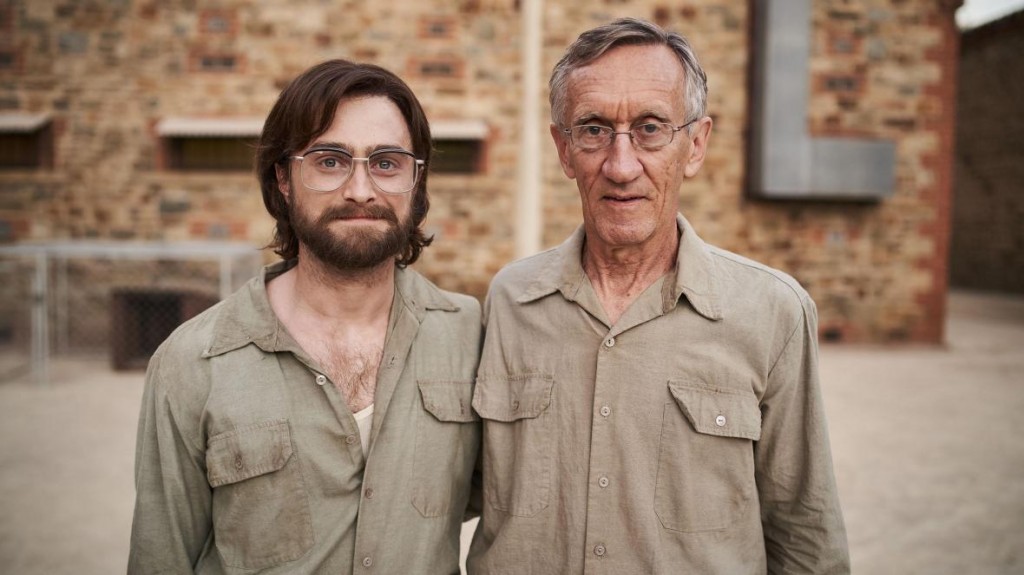
Tim Jenkin often visited the Escape From Pretoria Australian movie set, and Annan said they set up time for Dan Radcliffe to talk to Jenkin specifically about the events of his imprisonment and escape:
“All the actors at various stages got to talk to him. Also, we Skyped both Tim and Steven [Lee] before we shot for two hours with Dan Radcliffe, Dan Webber and Mark Winter, and it allowed us to ask basically any questions about that time and the escape and their time in the prison. It was really useful, and they gave us loads of facts that weren’t in the script, but really helped with rounding things out a lot.”
Conversations were also had on set and before filming about the injustice of the apartheid. Daniel Radcliffe was called the perfect person for the role by Tim Jenkin himself, due to his own political motivation. Annan has actually never seen Harry Potter, so working with Radcliffe, he said, was like working with any other hugely accomplished actor, and that likely helped the process!
“Dan and I were able to start off with me just telling him I just liked him as an actor, I was like, just a normal, regular person. I’ve never acted, but there’s something nice about just being accepted for what you do, too!”
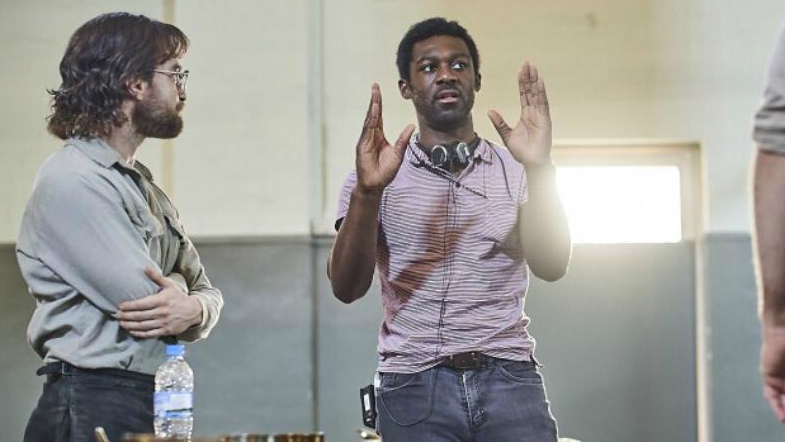
They also spoke about the wider scope of the story, and Annan mentioned their interest in the movie Munich, in which Daniel Craig’s character is undercover activist, and says that he started to see the international scope of anti-apartheid activism: “people don’t tend to see anti-apartheid struggles as being a very international one”.
Annan said that he and Radcliffe talked a lot about this international aspect of the era, and the fact that there were Asian and white people outside of Africa fighting apartheid, and groups of activists often being trained by IRA members and travelling to Europe and the U.K. to reach other networks. Annan was also interested in speaking to him about another political performance:
“I watched him in Imperium, where he played an undercover FBI agent pretending to be a Nazi, and that was a great thriller – Dan was great in it. There were a lot of connections to this you could see would work quite well – he takes on characters brilliantly, and really finds the space to connect with them and get into the script — he’s got that experience and it shows, for sure.”
Ian Hart and Daniel Radcliffe also got to reunite on the set of Escape From Pretoria since filming on Potter:
“They had great chemistry on set … Ian came on set about a week after we started shooting, and ran straight up to [Radcliffe] and gave him a huge hug and they got to have a catch up and sort of rekindle their friendship.”
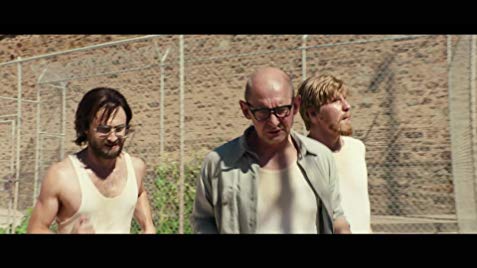
It’s been a long journey from conceptualising the movie to bringing to audiences, and on the afternoon before the movie’s premiere at Glasgow Film Festival, Annan told us more about the process:
“It’s been a rollercoaster, and a high energy journey for sure, but also a long one. We’ve been going since 2012, so it’s taken eight years to make this, there were so many drafts, Dan came on in 2016, we chatted about the script, loads had to be cut and there was a lot of back and forth and up and down, but we got there!”
And finally, Annan shared the message he hoped audiences would walk away from the movie with:
“There’s quite a high at the end – you go away feeling like, “Wow, this actually happened. They really got put in prison and escaped”. It’s about people recognising these amazing feats, but also communicating why they did this, and what was happening with the government. In the current climate, it’s interesting to tell a story about being wrongly imprisoned, but knowing that there’s always something you can do to speak out against injustice and unrighteousness.”
See Escape From Pretoria in theaters from tomorrow, March 6.

